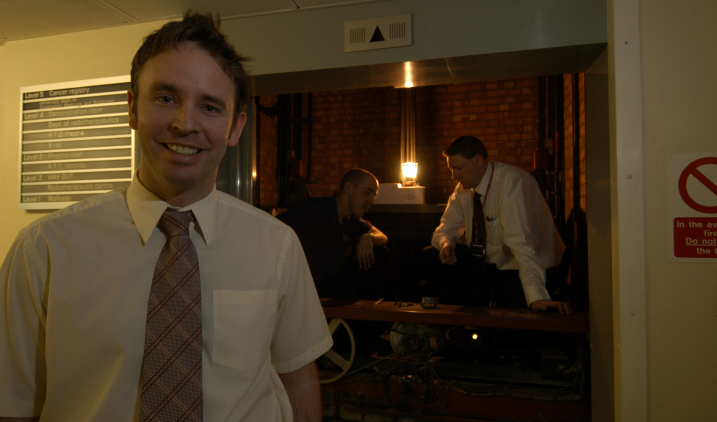Electrician
Our electricians keep the NHS running by making sure electrical systems and equipment are safe and working correctly.
Working life
The NHS relies on electric power and electrical equipment. They are essential to keep hospitals and other NHS buildings safe and working efficiently. Many NHS services use complex electrical equipment to treat patients, keep IT-based records and provide services such as heating, catering, laundry, etc.

As an electrician in the NHS, your work will include:
- planned maintenance
- repairing equipment that is broken or faulty
- testing equipment and systems
- improvements and installations
Who will I work with?
You'll work alongside other estates services staff such as plumbers, carpenters or bricklayers as well as estates and facilities managers. You may travel between sites in an NHS vehicle or their own van.
While electricians are working inside a building, staff and patients may be there, but electricians do not have direct contact with healthcare staff or patients.
Electricians may work for businesses providing electrical services to the NHS.
Entry requirements
To be fully qualified as an electrician, you need a level 3 qualification, usually an NVQ and/or a Diploma in Installing Electrotechnical Systems and Equipment.
Although electricians often join the NHS fully qualified and experienced, it may be possible to train as an electrician. Employers usually ask for at least three GCSEs (or equivalent), including maths, English and science. They may ask for some experience in construction or other practical work and a driving licence.
There are sometimes apprenticeships in estates support/estates maintenance that can provide this type of experience. Find out more about apprenticeships
Skills needed
Electricians need to be
- very health and safety aware
- able to follow procedures
- careful and responsible
- able to work alone or unsupervised when necessary
- able to work to deadlines
- good manual (hand) skills
- organisational skills
- time management skills
Training and development
When you start as a trainee electrician, your training will include
- health and safety
- how to use the tools and equipment
- all aspects of electrical work
You will be encouraged to study for qualifications such as NVQs.